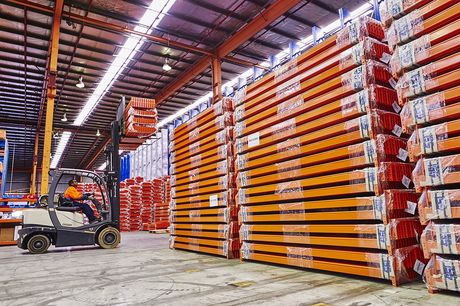Five top tips to help avoid industrial lawsuits

No-one wants a workplace injury, let alone the death of an employee or contractor. Employees operating forklift trucks need to be both competent and compliant, and it is the employer’s responsibility to ensure this is the case.
According to Anthony Keating, national manager safety, risk, environment and quality at Crown Equipment, workplace accidents, injuries and, in some cases, exposure to possible legal proceedings, can be mitigated. By applying the following tips, Crown believes you will reduce the chance of employee injury and possible legal exposure:
1. Ensure licences are current
If anyone on your site is able to step onto any forklift and start driving it, then you are at serious risk of litigation in the event of an accident. Companies need to ensure, and ultimately prove, that operators are licensed for specific vehicles. A system such as Crown InfoLink will effectively lock out operators who do not have the required certification for the vehicle they want to use. This starts by using individual access technology to allow only authorised operators to operate the equipment. It then proceeds to a 10-point safety check that ensures that they know the condition and components of the particular vehicle.
2. Capture details of all relevant incidents
Not all forklift operators are equally skilled. Some forklift operators cause more impacts than others, for example, with racking or other vehicles. Warehouse and operations managers need to know who these people are. A real-time monitoring and reporting software system such as Crown Infolink can deliver instant alerts every time a collision occurs, detailing the name of the operator and the severity of the impact, and present this as a constantly updated data display. In this way, you will be able to identify those operators who require refresher training and maintain records of your proactive approach to WHS requirements.
3. Ensure racking meets regulations
Minor impacts with racking and shelving are inevitable in busy warehouses and distribution centres. The fact is, however, that if the racking and shelving are not designed, manufactured and installed correctly, those minor collisions can have potentially disastrous consequences. And if the racking or shelving does not comply with applicable regulations, then you could be leaving yourself open to litigation. Crown Warehouse Solutions ensures that all its installations are compliant.
4. Keep operator training up to date
Training is not just about performance, it is also about proficiency, compliance, safety and risk mitigation. Crown Commercial Training is used by, on average, 100 operators every week of every year. Many companies believe that training is mainly for new employees or employees needing to be trained to operate new vehicles. However, general training is an essential aspect of compliant operations. If your operators do not have current licences that comply with your particular state’s regulations, you are at risk of litigation in times of serious accidents.
5. Maintain easily discoverable records
In times of audits or litigation, discoverable records are essential. Too many companies today still rely on paper documentation when it comes to providing factual records. Slips of paper on a desk spike that are filed in a cabinet once a day or week are no longer enough. The time taken to review all of these, plus the fact that many incidents are either inadequately or never reported, can leave you exposed when evidence of events is required. Companies today need to have comprehensive event logs that are easily and quickly discoverable and retrievable. Crown InfoLink real-time monitoring and reporting software provides this capability.
Contract labour in mining: do savings outweigh safety outcomes?
Australian researchers have analysed decades of research on contract labour in mining, arguing...
Psychosocial risk management: eight trends with tips
Psychosocial risk management has become a central pillar of workplace safety and organisational...
50 in 2024: Victoria's workplace fatalities figures
Transport, construction and agriculture were Victoria's deadliest sectors in 2024, with...










